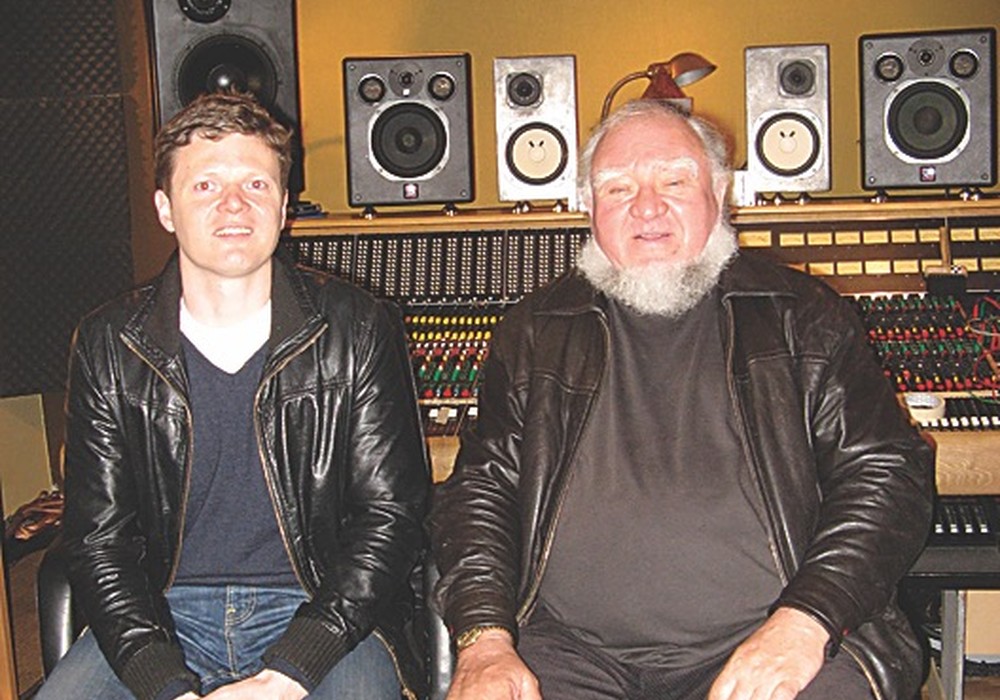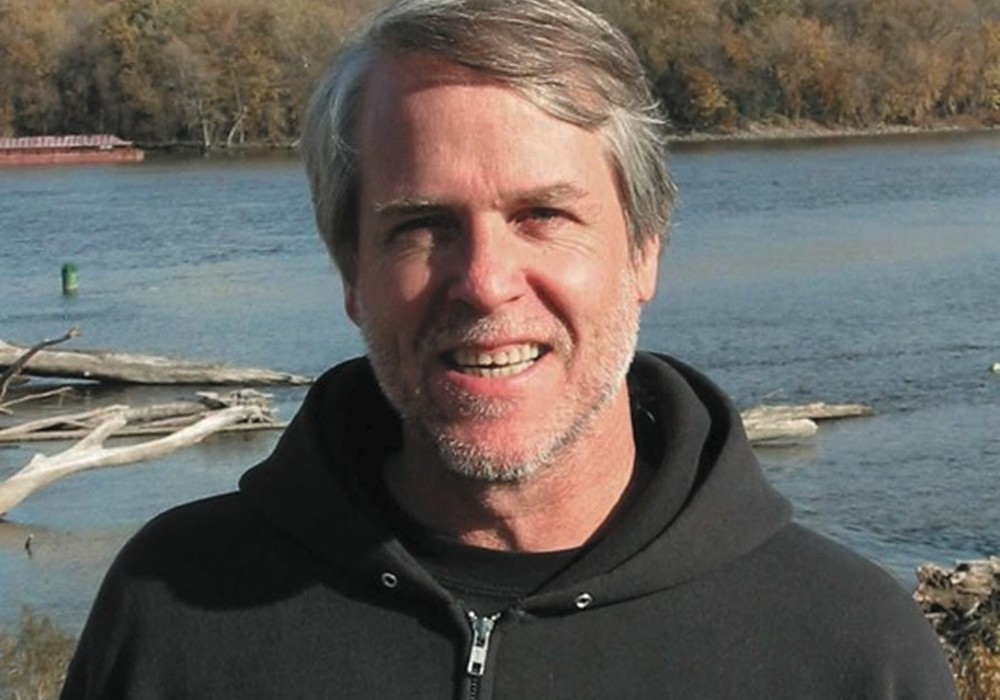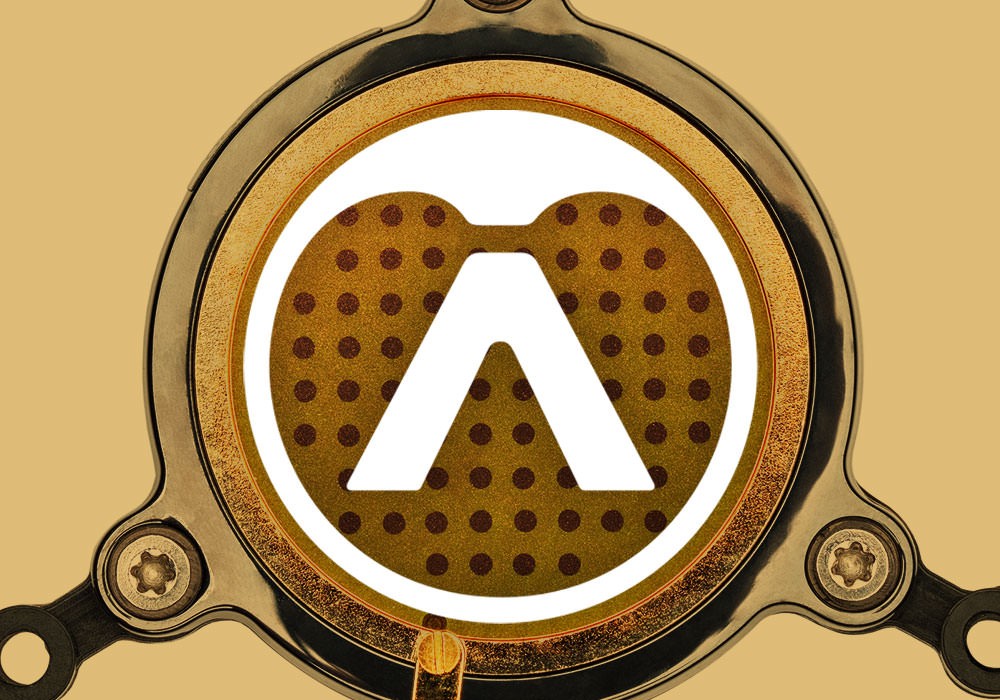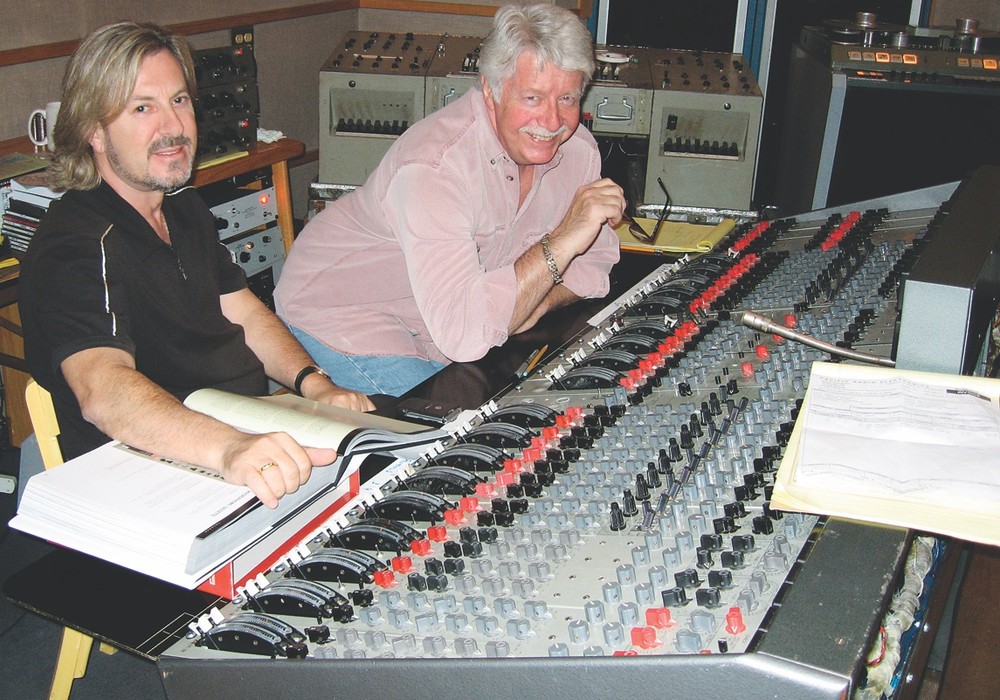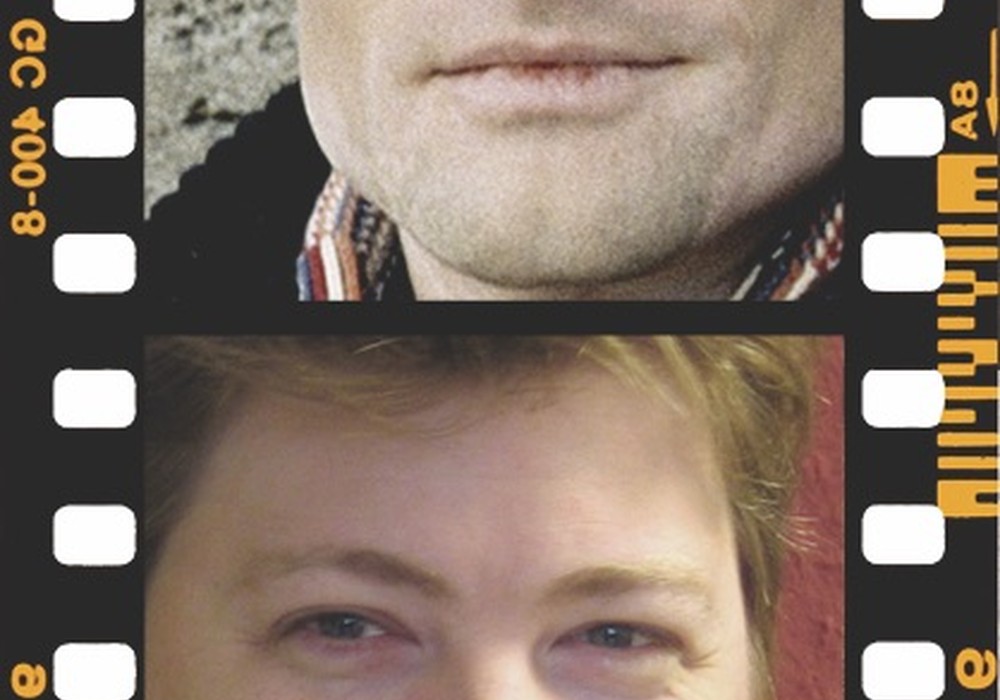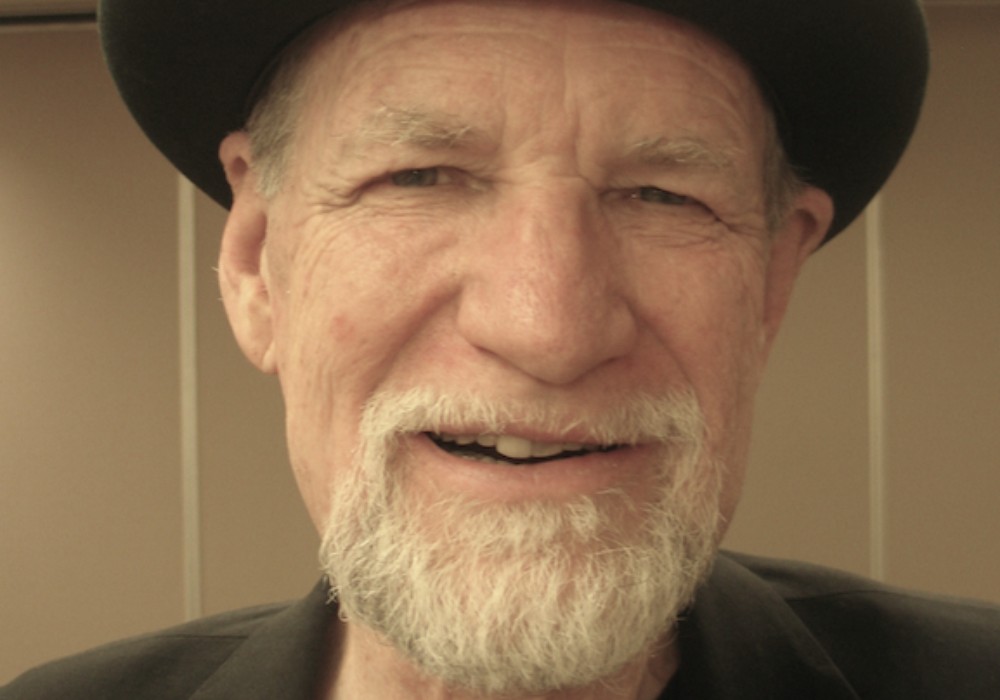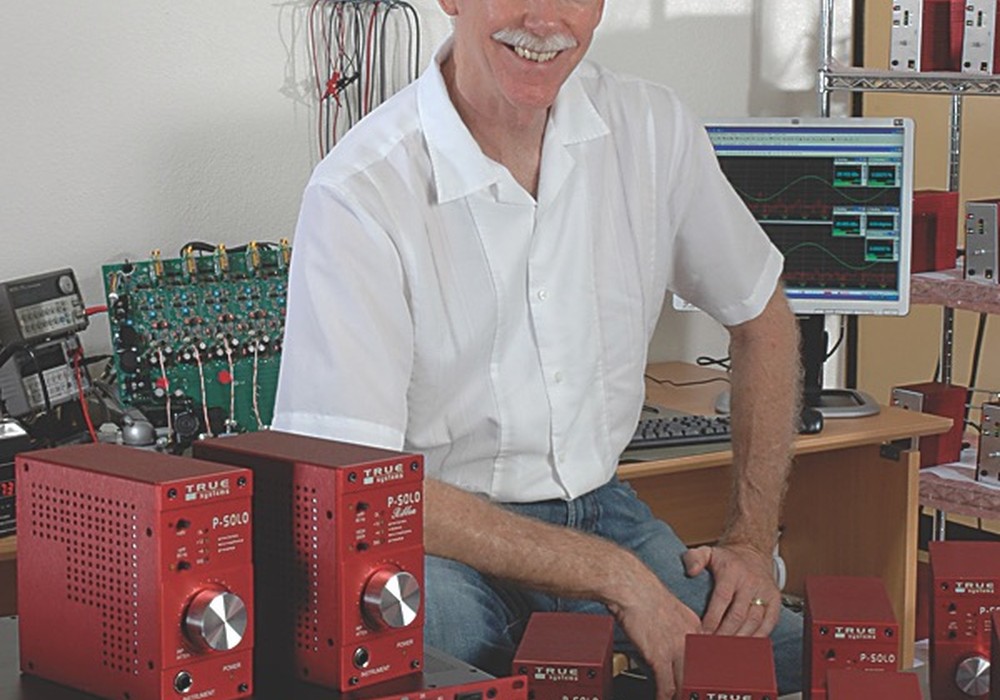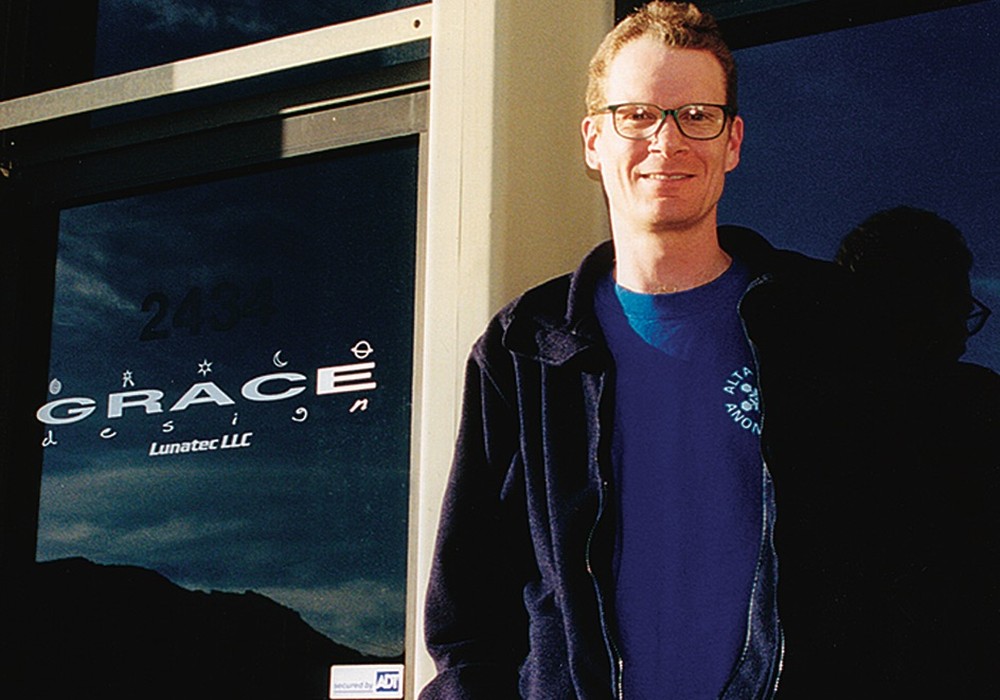A character, genius and great host are just a few of the words to use in describing Geoff Daking. A resilient man having survived an entire US tour with The Who opening for his band, The Blues Magoos, Geoff immediately strikes you as a man who could easily survive a nuclear war.
I recently had the opportunity to have dinner, get drunk and do this interview with Geoff at his beautiful home in Laguna Beach, CA. Hopefully this can be as educational for you as it was for me, of course without enduring the pain that was inflicted on me in doing this interview.
When and how did you begin recording?
My first session was doing a jingle for TWA Airlines in 1970 at Sound Ideas, in New York.
Did you have any previous background in recording?
Well, I learned a lot playing drums in The Blues Magoos. We did three albums on Mercury and I learned by watching. It was really different then. We started on three track and graduated to four track. Our third album was mostly eight track. At that time, we had a big house in the Bronx that we sublet from Gram Parsons. We did some recording at home with a remote recordist called Reiss Hamel. He was the guy who did all of the great live jazz records in the 60s. He did Cannonball, that sort of stuff. We recorded on two four tracks on a home-made Nuvistor board. By then, I learned enough to b.s. My way in, but actually, I had no idea what side of the machine the tape went on.
So you're one of those bullshit artists who's smart enough to catch up.
Exactly, never tell the boss that you don't know how to drive the truck!
That was more than thirty years ago, you are now well known as a great engineer, you must have done some kind of recording since that TWA jingle.
I did everything from film scores to Meat loaf to records for artists like James Brown, Roberta Flack, Paul Desmond, Foghat, Hall & Oates, Donny Hathaway, Rod Stewart, Tom Dowd and many more.
So you're a badass — recording engineer and then at some point you began to build bad ass recording equipment. What inspired you?
It was a lot of things; mainly it was the fact that all the new gear sounded like crap! It all began with the MCI consoles. Then transformers were replaced by cheap integrated circuits. In 1993, I was still in the studio business. I sold out of that and started this.
Don't transformerless circuits spec out better and are more efficient at retaining signal integrity?
Number one! Transformers are the most efficient way to achieve their number one function, impedance matching. They are the best in eliminating noise due to grounding. A transformer eliminates the hard wired connection between the output and the input. This eliminates ground related noise. Transformers are electrically bullet-proof, retain their performance forever, and consume no power even at high signal levels. Anyone choosing not to use transformers is doing so to save money. Input transformers retail for fifty to a hundred bucks a pop, whereas cheap integrated circuits are what, fifty cents each? Transformers are bulky and expensive, but you tell me, would you rather record on a Mackie or a Neve?
Point well taken, but there must be reasons other than economics why so many equipment manufactures design their gear so differently than what you feel sounds good.
Most audio equipment is designed by people who have no idea what's going on in a recording studio. Unlike Bill Putnam [Tape Op #24], who designed the 1176 and LA-2A limiters, most designers work for big companies driven by ad and marketing departments. The gear he [Bill] designed was based on his needs in the studio. He was a great recording engineer. George Massenburg [#54] is a great engineer and builds great stuff. At most electronics companies, you may find someone with a home recording studio, but nowhere at a company like that are you going to find someone who is a serious professional recording engineer. I would challenge any manufacturer to show me an employee that designs recording equipment that has ever done a recording session other than vocal overdubs in a home studio. As Russ Hamm once said, "This is no longer an industry of professionals".
I tried your mic-pre/EQ on vocals recently and found them to really have a great sound! I used your EQ to bring in some of the most beautiful musical sibilance I have ever gotten out of a U-67.
That is because they are modeled after the Trident A- range. A mixing...
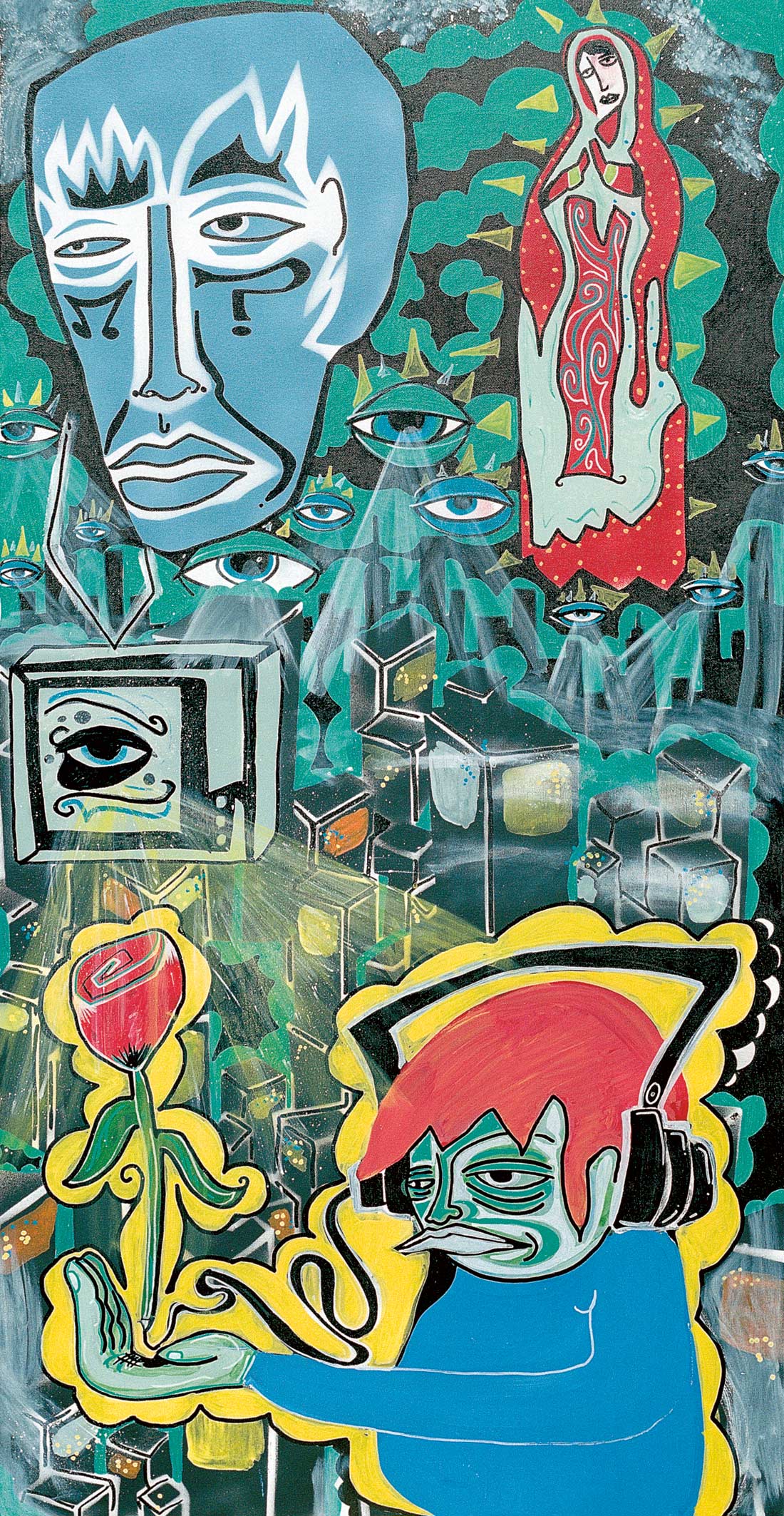

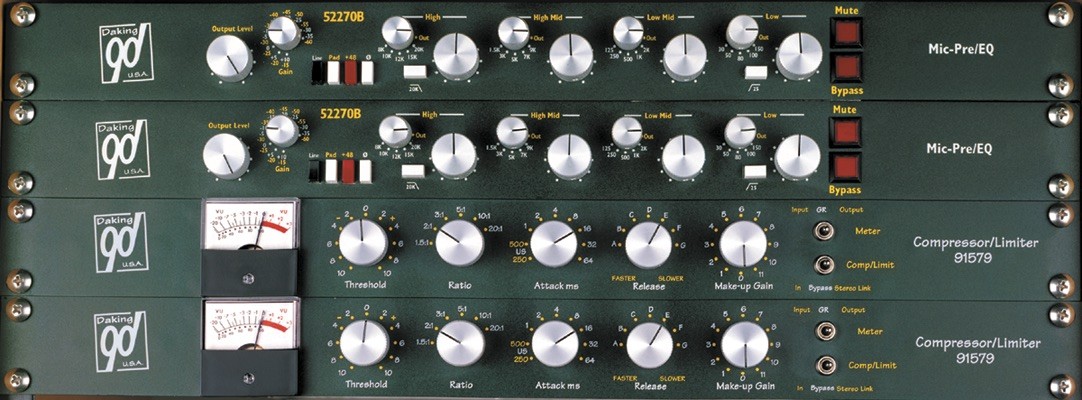
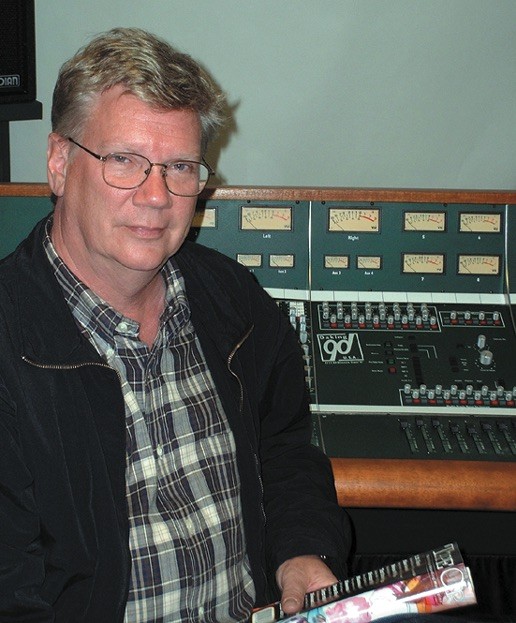


_disp_horizontal_bw.jpg)
